- Home
- Roger Taylor
The Waking of Orthlund Page 45
The Waking of Orthlund Read online
Page 45
‘Drago,’ she said. ‘I’m Sylvriss, Queen of Fyorlund, and daughter of Urthryn, Ffyrst of Riddin. I will excuse your offence against my person because you know little better, but your presence here offends against our laws, and I cannot excuse that. I command you and your men to lay down your weapons.’
For a moment, Drago stared at her, seemingly awed. But that moment, too, passed.
‘Woman,’ he said, ‘all I can see is a fool on a horse. You should’ve kept on riding. When we’ve dealt with your “servants” here, we’ll deal with you, Muster wench or no.’
Sylvriss rode forward, more fully into the light. She raised her hand.
The Goraidin and the High Guards saw it first; torches flickering into life out in the surrounding darkness. Yengar looked round quickly. The lights were all around them, each swaying from side to side gently.
Drago followed his gaze, then spun round, his face both fearful and livid. His massive hands twitched around the shaft of his axe.
‘Lay down your weapon, Morlider,’ the Queen said again. ‘Unless you want a dozen arrows in you.’
The lights moved nearer to each other. The circle was closing.
Yengar had seen the Muster in action, both as mass cavalry and individual skirmishers. Their speed, manoeuvrability and discipline were awe-inspiring, and in his mind they were always associated with pounding irresistible power. But subsequently his memory of them would come to be dominated by their silent approach out of the Riddin darkness that night; strange, towering shapes shifting and changing in the swaying torchlight. Yengar felt primitive childlike fears stirring inside him faintly at the sight of these eerie, menacing night creatures advancing unhurriedly but relentlessly towards him.
Whether Drago felt the same is a matter of conjecture, but with an oath he threw down his axe. Following his example, his companions threw down their weapons also.
As they did so, the circle closed and the Morlider found themselves torchlit and exposed, between the words of the High Guards and an impassable wall of silent riders.
Drago looked at Sylvriss. ‘I knew you were trouble as soon as I looked at you, woman,’ he said.
‘Watch your tongue, sea thief,’ came a voice from just behind Sylvriss. The speaker edged his horse forward. His cloak glistened with rain, and the torchlight threw grim shadows on an already gaunt face.
Drago stared at him, unrelenting. ‘For now, horse rider,’ he said unrepentantly. ‘But our time’s coming soon.’
Sylvriss raised her hand and spoke to Drago again.
‘The line leader tells me you have indeed hurt no one during your . . . visit,’ she said. ‘We will therefore escort you to your ship and allow you to leave.’ She looked at the still motionless figure of Symm, and at the man Yengar had struck, now gingerly checking his nose and teeth and wiping away the blood that still flowed from his nose periodically. ‘We’ll tend to your injured for you, as well,’ she said.
‘No,’ said Olvric sharply. ‘They mustn’t be allowed to leave. They must be kept here.’
Yengar nodded in agreement.
The man by Sylvriss leaned forward. His face showed his fatigue. ‘You’re free with your orders, Fyordyn,’ he said coldly. ‘It’s not our way to feed and house these scoundrels. And it seems you’re as disregardful of your Queen’s will as you are of her safety.’
Olvric’s eyes narrowed slightly, and Yengar laid a hand on his arm gently. ‘That’s a fair reproach, line leader,’ Olvric said after a moment. ‘We were remiss in our guard and will account for it to our superiors in due course. But we’d not expected to find Morlider wandering loose, least of all so far inland when the Muster patrol the coast so thoroughly.’
His tone was acid and the line leader’s jaw twitched angrily.
His horse took half a pace forward.
‘Enough,’ Sylvriss said severely. ‘I don’t intend to hold a debate in the pouring rain, and in the middle of the night. We’re all tired and cold. With your permission, line leader, I suggest we make camp unless there’s any pressing reason why we should be elsewhere. We’ll have time enough to talk tomorrow.’
Still glowering at Olvric, the line leader reined his horse back. ‘As you wish, ma’am,’ he said.
The following day dawned to a clearer sky but a chill wind blew down out of the snow-covered mountains and rattled the tents and shelters of the hastily rigged camp.
Their immediate task completed with the capture of the Morlider, the Muster was effectively stood down and the line leader made no effort to rouse his riders early following their recent prolonged riding.
Pulling his cloak about him he left the tent which housed the captives and walked towards the Fyordyn’s small shelter.
Discreetly he eased back the entrance flap and, crouching down, peered inside. As he did so, a hand moved quickly in front of him. He caught a glimpse of a knife but, before he could react, the blade was resting against the side of his neck, and the edge of the hand pressing against his throat. The contact of the hand had a purposeful reality in it more awful than the cold blade, and while he sensed no real danger, he knew that an unpleasant death could be less than a breath away.
‘Don’t move,’ said a soft voice needlessly.
Without turning his head, the line leader cast a sideways glance at his captor. ‘I was coming to apologize anyway, Goraidin,’ he said. ‘A night’s sleep makes a difference.’
The knife disappeared and Olvric laughed.
‘It does indeed,’ he said. ‘The Morlider caught us both by surprise, I suspect.’
The line leader nodded his head in agreement, then shook it to decline Olvric’s beckoned invitation to enter.
‘We must talk,’ he said simply. ‘Will you join me for a meagre portion of cold field rations?’
‘Oh, dear,’ said Yengar, sitting up. ‘Too long in the saddle eh, line? Does that mean it’s going to be short commons all the way to Dremark?’
The line leader looked appreciative. The Fyordyn would decline to eat well while their rescuers fasted; it was a heartening gesture.
‘No,’ he said. ‘Perhaps only for a day. I’ve sent messengers out with the news of the capture of the Morlider and asking for more supplies. I told them to make no mention of your arrival. I thought that best until I’d spoken with you. The unexpected arrival of the Ffyrst’s daughter with such a small escort obviously betokens trouble somewhere.’
Olvric nodded.
‘Be quiet and shut the door,’ someone said sleepily.
The two Goraidin exchanged a glance and then joined the line leader outside. Before leaving however, they folded back the entire front of the shelter.
As the three walked through the wakening camp, the line leader introduced himself. ‘I’m Girvan,’ he said. ‘Girvan Girvasson, brother to Girven, head of the third house of Orness in the Decmill of Westryn, cousin to Rannag, daughter of . . .’
Yengar laid a hand on his arm. ‘Please forgive us,’ he said. ‘But Riddin lineages bewilder us Fyordyn at the best of times and, to be honest, both Olvric and I have difficulty beyond our own first cousins. Girvan will suffice.’
Girvan looked at him uncertainly for a moment, then he nodded significantly. ‘I take no offence,’ he said. ‘I seem to remember some such problem with Fyordyn in the past.’ He wrinkled his forehead in concern. ‘It must make your lives very difficult,’ he added.
‘We manage, Girvan,’ Yengar said. ‘We manage.’
Girvan led them to one of several large tents. Inside was a scene of modest chaos as its occupants were rousing themselves and preparing for the day with varying degrees of stoicism and dignity. They all stopped and stared as the two Goraidin were ushered in, but the brief unease passed as Girvan appeared behind them.
‘Riders,’ Girvan called out. ‘I need to talk to our friends.’
Without debate a space cleared around what Yengar took to be Girvan’s sleeping area. Girvan beckoned to a young woman nearby. ‘Lennar,’ he said. ‘Could you fetch
us whatever the cook’s managed to scrape together this morning?’ He held up three fingers.
The woman nodded and smiled, and pushed past them to reach the entrance. As she passed Yengar, she looked him up and down curiously. Yengar smiled uncertainly then started, as with a resounding thwack her hand landed on his behind. It was followed by some laughter and applause from the other Riddinvolk. Yengar felt himself blushing.
‘Lennar!’ Girvan said with stern paternalism, then reassuringly to Yengar. ‘It’s all right,’ he said. ‘She’s just skittish. You’ll have no problem while we’re in camp. Sit down, sit down.’
Yengar did so, quickly.
Girvan came straight to the point. ‘Why are you here, Fyordyn?’ he asked. ‘With the Ffyrst’s daughter – your Queen. And why do you ask us to keep these Morlider – something we’ve never done.’
Yengar looked around the tent. People were coming and going, stowing their equipment and generally preparing to break camp. None seemed curious about their line leader’s private conference. He realized it was a protective habit that the Riddinvolk must have developed through spending much of their lives in such communal quarters.
He turned back to Girvan. ‘We can’t tell you why we’re here,’ he said. ‘At least, not yet. The Queen must tell her father first.’
Girvan frowned. ‘Yes, I forgot about your . . . elaborate . . . ways of discussing things,’ he said. ‘But I asked for a reason. I’ve patrolled here for years and seen little more than the odd soul who’s lost his way from the Gretmearc. Now, within a few days of one another, one of the old men from the Caves comes and tells us he has an important message for Urthryn; Morlider land for the first time since the war; and you appear, presumably out of some little used route through the mountains, escorting your Queen, no less.’ He looked intently at each of the two men. ‘The lines of the house of Orness are responsible for patrolling the northern borders,’ he said. ‘I want no precious secrets, but I need to know what trouble is following you so that I can dispose the lines properly to meet it.’
‘Yes, I understand,’ Yengar said. His Goraidin training told him he must give this man the information he needed to answer these legitimate concerns. ‘As far as we know, no danger follows the route we took. Certainly no army, especially now the snows have arrived. It might perhaps not go amiss if you increase your vigilance of the more usual routes from Fyorlund, but again, I doubt any force will be coming. As for your old man and the Morlider, I know nothing.’
Lennar appeared with food. Girvan looked at her severely and she contented herself with accidentally brushing against Yengar as she reached across to hand a plate to Olvric.
Clearing his throat, Yengar answered Girvan’s other question.
‘We asked you to keep the Morlider because they too raised questions which should be answered,’ he said. ‘For one thing, they were too far inland for such a small raiding party.’
Girvan coughed, and pulled at his ear. ‘That was my mistake,’ he said awkwardly. ‘We delayed because we didn’t believe the first reports we got, then we accidentally cut them off and drove them this far in. It was fortunate for us all that Sylvriss ran into us when she did otherwise we might have ridden past and lost them for days.’
‘That’s one problem dealt with,’ Yengar said, looking relieved. ‘Their appearance here made no sense at all. But there are other matters. Their leader, Drago . . . spoke of a new chief; of wanting . . . breeding stock.’ He wrinkled his face in distaste at the expression. ‘Of their time coming soon,’ he concluded.
Girvan shrugged. ‘Words,’ he said. ‘Rhetoric. He was blowing air in front of his men. Probably didn’t like Sylvriss getting the better of him – they’ve some very strange ideas about women, you know.’
Both the Goraidin shook their heads and said ‘No,’ simultaneously. Olvric spoke. ‘You’re a veteran, if I’m any judge, Girvan,’ he said. ‘Why did your country ask for help twenty years ago?’
Girvan looked at him, but there was no accusation or offence in Olvric’s manner.
‘There were too many of them,’ he answered simply.
Olvric nodded. ‘Far too many,’ he said. ‘And from what we know about them, their islands are crowded with people. They can want breeding stock for one thing only. Fighters. Armies.’
Girvan looked uncertain. Olvric leaned forward. ‘Drago knew he probably wouldn’t reach the coast undiscovered, yet he was so concerned about his new Chief, that he was prepared to slow himself down and also risk being punished by you by taking a pregnant woman with him.’ He reached out and took the line leader’s arm. ‘And they have a torch, the like of which we thought existed only in Fyorlund, and which betokens no good. We have to question these people, Girvan. Find out what’s going on. I fear that our troubles and yours may be the same.’
Girvan looked from Olvric to Yengar and reached his decision. ‘I’ll have the watch on the coast increased,’ he said. ‘And give orders that Morlider are to be captured and taken to Dremark.’
Chapter 30
The Morlider War had been fought mainly in the north of Riddin and following its dreadful conclusion the various allies had said their sad farewells on the battlefield and departed directly for their homelands. Thus neither Yengar nor Olvric had ever visited Dremark.
It was unlike anything they had ever encountered in Fyorlund. Where Vakloss stood high on a solitary hill, dominating the surrounding countryside and dominated itself by the Palace, Dremark was spread over the floor of a lush valley, its centre being overlooked by those outskirts that rose up the valley sides. Where Vakloss had tall, haughty buildings, bedecked with elaborate and colourful wood carvings, Dremark had wide, open streets and smaller, simpler buildings whose plain white walls were decorated with expansive painted murals showing, inevitably, horses and horse riders: horses grazing on rolling countryside; horses in battle, from travelling columns to cavalry charges; horses working in the fields; horses in Festival celebrations and parades and, above all, in the Helangai, a fearsome game played at the least excuse and with monumental zest by seemingly all the Riddinvolk.
Girvan’s line had played it once on the journey from the north, shortly after they had crossed the River Endamar. It seemed to Yengar to be almost like an act of thanksgiving now that they were leaving the harsher pastures of the north behind them.
The principle of the Helangai was simple enough: a large, weighted bag, suspiciously man-shaped, was to be picked up and carried to an agreed place on the field. It could be played anywhere, and by any number of riders, and would sometimes last for days, ranging far and wide across the countryside. Apart from outright murder and maiming, however, there seemed to be no rules, although Yengar noted that anything which threatened to injure the horses brought swift dismissal from the field for the offender.
He and Olvric watched it for a little while from the edge of the field, but with their unerring instinct for survival, soon retired to a nearby, higher rock to watch the remainder of the game in a combination of amazement and bewilderment.
At one point, Lennar, circling wide, rode by them and stopped to wipe perspiration from her flushed face. She waved enthusiastically to Yengar. ‘Get your horse. Join in,’ she cried.
Yengar declined the invitation as politely as he could, but freely cited cowardice as his excuse.
‘It’s only a little knockabout. Nothing serious,’ the woman declaimed, puzzled, but seeing Yengar was not to be persuaded, she was soon swept into the fray again.
Olvric chuckled.
‘Shut up,’ Yengar said brusquely, staring intently at the mayhem swirling in front of them.
Olvric’s chuckle turned to a barely stifled and prolonged laugh.
The journey to Dremark had been hard on Sylvriss’s escort. They had neither the mounts, the skill, nor the endurance to keep up with the Muster line for any distance once they moved beyond a leisurely trot. Girvan was thoughtful about his guests and tried to keep the pace moderate, but even the Goraidin were more
than pleased when at last they came to the top of a ridge and saw Dremark sprawling below, peaceful in the autumn sunlight; the silver thread of a river running through it.
The city streets were busy, but their width and the sense of spaciousness afforded by the relatively low buildings lent it a relaxed and pleasant air. Girvan had sent the captives in discreetly, by post-wagon, and had equally discreetly sent a personal messenger to Urthryn to tell him of the unexpected arrival of his daughter and of her wish to enter Dremark unnoticed. Thus their arrival was that of an ordinary Muster line accompanied by a few strangers, and attracted little or no attention, although one or two passers-by stared at Sylvriss awkwardly, trying to place a long-forgotten face.
The murals fascinated the Fyordyn, as did the practice of the Riddinvolk of grassing the roofs of their buildings and sweeping them down to ground level in long continuous ramps.
‘Look, horses on the roofs,’ Kirran exclaimed delightedly, when the nature and function of the architecture became apparent. ‘These people are splendid.’ Then, gazing round: ‘It’s bigger than it seems from above, but these buildings still seem small. I wonder where they all live.’
‘Below ground,’ Sylvriss said, catching the remark. ‘Most of our buildings go at least twice as far below ground as they go above it.’
Kirran snapped his fingers. ‘I remember someone telling me about it,’ he said. ‘Fascinating. But what a strange way to live.’
The Queen smiled at this inadvertent discourtesy. ‘No,’ she said, laughing. ‘It’s very cosy. Personally I found it quite difficult to understand a people who chose to live high in the air on top of a hill, especially when their winters were so long and so cold.’
Kirran, realizing his mistake, began stammering an apology, but the Queen waved it aside, still laughing.
Then, accompanied by Girvan and one or two other riders, they were riding slowly into the city estate of Urthryn, the Ffyrst of Riddin and father to Sylvriss.
Despite the comparative warmth of the day, the Queen pulled her hood forward.

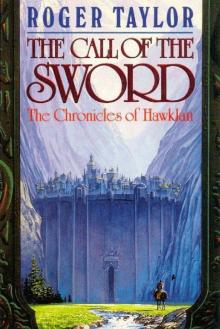 The call of the sword tcoh-1
The call of the sword tcoh-1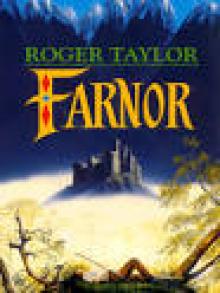 Farnor
Farnor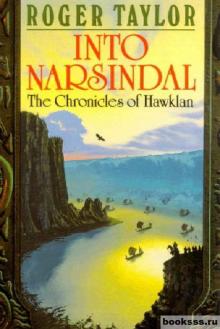 Into Narsindal
Into Narsindal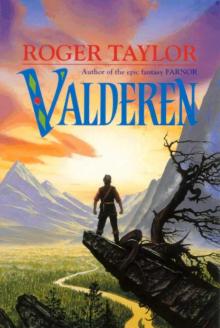 Valderen ft-2
Valderen ft-2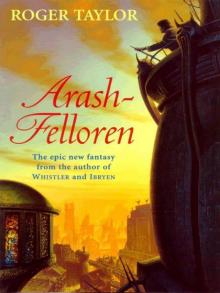 Arash-Felloren
Arash-Felloren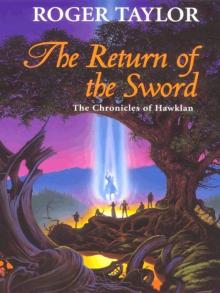 The Return of the Sword tcoh-5
The Return of the Sword tcoh-5![Ibryen [A sequel to the Chronicles of Hawklan] Read online](http://i1.bookreadfree.com/i1/03/26/ibryen_a_sequel_to_the_chronicles_of_hawklan_preview.jpg) Ibryen [A sequel to the Chronicles of Hawklan]
Ibryen [A sequel to the Chronicles of Hawklan]![The Call of the Sword [Book One of The Chronicles of Hawklan] Read online](http://i1.bookreadfree.com/i/03/24/the_call_of_the_sword_book_one_of_the_chronicles_of_hawklan_preview.jpg) The Call of the Sword [Book One of The Chronicles of Hawklan]
The Call of the Sword [Book One of The Chronicles of Hawklan]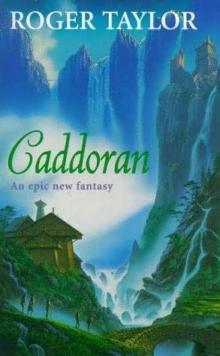 Caddoran
Caddoran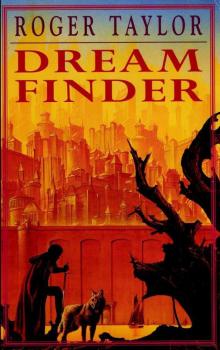 Dream Finder
Dream Finder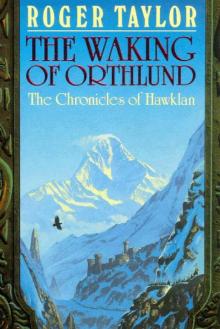 The Waking of Orthlund
The Waking of Orthlund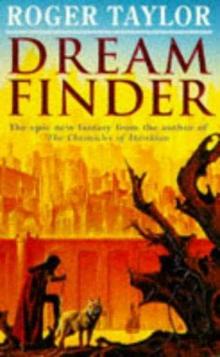 Dream Finder cohs-1
Dream Finder cohs-1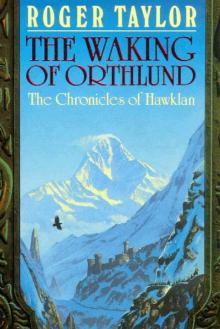 The waking of Orthlund tcoh-3
The waking of Orthlund tcoh-3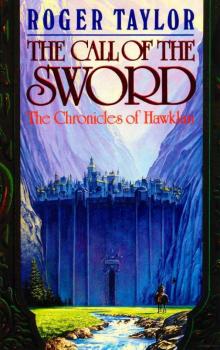 The Call of the Sword
The Call of the Sword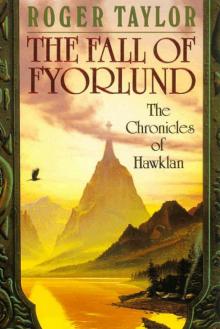 The fall of Fyorlund tcoh-2
The fall of Fyorlund tcoh-2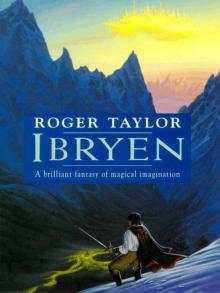 Ibryen
Ibryen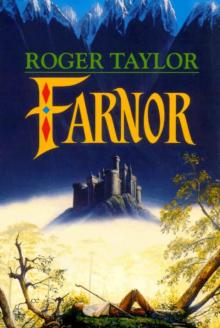 Farnor ft-1
Farnor ft-1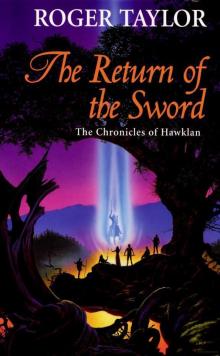 The Return of the Sword
The Return of the Sword![Into Narsindal [Book Four of The Chronicles of Hawklan] Read online](http://i1.bookreadfree.com/i2/04/06/into_narsindal_book_four_of_the_chronicles_of_hawklan_preview.jpg) Into Narsindal [Book Four of The Chronicles of Hawklan]
Into Narsindal [Book Four of The Chronicles of Hawklan]![Valderen [The Second Part of Farnor's Tale] Read online](http://i1.bookreadfree.com/i2/04/05/valderen_the_second_part_of_farnors_tale_preview.jpg) Valderen [The Second Part of Farnor's Tale]
Valderen [The Second Part of Farnor's Tale]![The Fall of Fyorlund [Book Two of The Chronicles of Hawklan] Read online](http://i1.bookreadfree.com/i2/04/08/the_fall_of_fyorlund_book_two_of_the_chronicles_of_hawklan_preview.jpg) The Fall of Fyorlund [Book Two of The Chronicles of Hawklan]
The Fall of Fyorlund [Book Two of The Chronicles of Hawklan]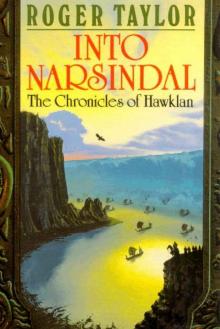 Into Narsindal tcoh-4
Into Narsindal tcoh-4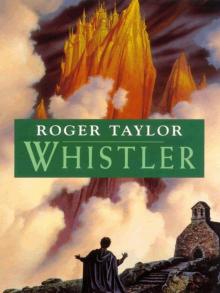 Whistler
Whistler![Whistler [A sequel to The Chronicles of Hawklan] Read online](http://i1.bookreadfree.com/i2/04/12/whistler_a_sequel_to_the_chronicles_of_hawklan_preview.jpg) Whistler [A sequel to The Chronicles of Hawklan]
Whistler [A sequel to The Chronicles of Hawklan]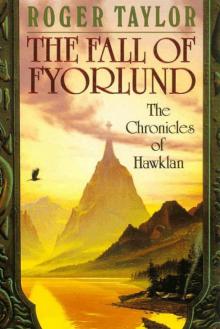 The Fall of Fyorlund
The Fall of Fyorlund![The Waking of Orthlund [Book Three of The Chronicles of Hawklan] Read online](http://i1.bookreadfree.com/i2/04/11/the_waking_of_orthlund_book_three_of_the_chronicles_of_hawklan_preview.jpg) The Waking of Orthlund [Book Three of The Chronicles of Hawklan]
The Waking of Orthlund [Book Three of The Chronicles of Hawklan]